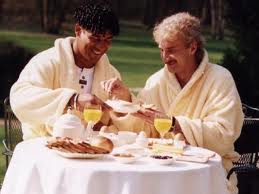Ruud Gullit aimed to bring Oranje to the World Cup alongside Dick Advocaat. It didn’t work out. Gullit’s story, on his time with Oranje, the crisis in Dutch football and the hope he feels inside him.
When Gullit walks into the lunch restaurant in Amsterdam, he’s got a big smile on his face. As per usual. He just had a body-scan, a preventive medical examination. “Man, I had to be all empty for that. You can’t eat for 24 hours and anything that is left in your body, got to go out. They put tubes in your mouth, in your ass, in every body-opening a tube, hahaha. Well, they tell you afterwards what’s going on and in my case: all clear. Super healthy!”
He orders a soda water and a salad. “Now I’ll do a bit more even to stay this way, hahaha.”
So, when did you – uber positivo – lose faith in Oranje’s chances for the World Cup?
Ah, the night Sweden thrashed Luxembourg… My faith got a big blow. We were in the bus for our Belarus game, towards the Johan Cruyff Arena. And we heard ping after ping on the mobile phones. That was a big downer.”
So how can you then motivate the players to have them play with confidence?
“That’s hard. But we stayed positive. Look at yourself, focus on the tasks at hand. We have quality and we will beat Belarus! This is also how we approached the Sweden game. But we didn’t make it. The series we played weren’t too bad. With normal rules (the results between rival Sweden would normally be the decider instead of goal difference) we would have qualified. In the CL, it’s about the result between the two clubs who finish at the same level of points. Our results vs Sweden were better but still we’re out. That is wrong!”
Did you do enough though, to get our goal difference up?
“I do believe so. It’s so easy to say you gotta start with four attackers. We played against Belarus with four, at some stage and we gave away chance after chance. You can’t just say “now we’re going all attack!”. The contrast is crazy, we needed control first and we actually did well considering the circumstances. And while we were trying to get more confidence in the team, the people and media around us had all this negative energy going out way. It becomes really hard to overcome all that.”
When you and Dick were presented, it wasn’t about the Dutch School, but all about winning. That was a conscious decision?
“No not really. Dick and I have a similar vision and approach. Winning is all that matters. I get annoyed with all that talk about attractive football. We are not in a position to want to play attractive. I played for AC Milan, which was at that time one of the most attractive teams on the planet. But seriously, three quarters of all our matches were won ugly. Just get the points. And I’m talking absolute top! And yes, Pep Guardiola spends 500 mio euros to get the football he wants, but we believe we can play like that with our national team? Don’t make me laugh!”
Have we been too much focused on all this, in Holland?
“For sure! We see ourselves as the inventors of modern football. I will never forget Carlo Ancelotti’s words, whenever Dutch reporters would come to Milanello. “Ah, there are the Dutch football professors again!”. And that still is our image abroad. A couple of know-it-alls who talk about tactics as if it’s some holy topic, but never winning trophies. And its our own doing.”
Is that why we don’t see top coaches from Holland in the big leagues anymore?
“Partly, yes. And it’s no surprise to me. Dutch coaches stay in their bubble too long in other leagues. And we go into another football culture and tell them they’re doing it wrong. But adapting to other circumstances is key. There is not just One System, there are more ways leading to Rome. And sometimes we get a shock and wake up. Like, when Dutch clubs are without a hope in the world in European competitions. Or when a coach gets fired. We all start yelling how is it possible that we are so far behind, but then we shrug our shoulders and keep doing what we were doing.”
You couldn’t make it happen for Oranje though.
“We did turn the results around. But it wasn’t enough. We don’t need to be all dramatic about it. It’s like the economy. There are waves of talents and periods with lesser talent. When we won the EC in 1988, we hadn’t performed at 3 major tournaments. In 1988, PSV won the European Cup, KV Mechelen with a couple of Dutchies won the EC II. A year prior, Ajax won that. Marco and I were at AC Milan. But when we were younger, we didn’t qualify either. And Robben, Van Persie and Sneijder also needed time to become the world class players they ended up becoming. And we’re in one of those phases now. But we still ooze talent.”
So how hard will we miss those big name players going forward?
“You will miss Robben for sure. He was a top player for us, and a role model. And in the last matches, Sneijder was there and he did ever so well. A fantastic mentality. He was on the bench, and usually a player like him can’t handle that too well but he is no fool. And he wants to keep on fighting for Oranje. He really pushes the quality up at practice. And after the friendly against Scotland, he got me in stitches. He wasn’t used by Dick and he walks into the dressing room after the game and says “Wow, I didn’t know you can only sub two players in a friendly!”. Typical Sneijder. And you could wipe me of the floor. Others will have to step up now.”
How is it that top players like Wijnaldum and Strootman are vital for their top clubs but are so disappointing in Oranje?
“Good point. The good thing is, these players know this too and they’re working on that. It’s a first step. I have visited Kevin in Rome and discussed it with him. The contents will remain between us, but it’s too easy to just point at the difference in teams they play in. There is more to it. The meeting I had was good, open and honest and Kevin thanked me afterwards. Players need to look in the mirror first. I also spoke with Wijnaldum about it. And they’re top players and smart too. They now have the experience and status to be the leaders. Like Virgil van Dijk, that lad has everything to be world class: length, speed, strength, a good build up pass, but he can be a little complacent at times. He needs to focus. Once he focuses for 100%, he will be a top top defender. Daley Blind, he is a super player in the role we used him in, just in front of the back four. Tonny Vilhena is also a player I rate high. I expect him to grow once he makes his move from Feyenoord. I think he’s ready for it. And Stefan de Vrij is top at Lazio, Memphis is reborn in Lyon, I think we have amazing players. It’s not all bad news.”
Which young talents do you see emerge?
“I see many. Matthijs de Ligt, he copped criticism after Bulgaria, but I told him not to worry about that. See, he’s developed at Ajax, and at Ajax they are used to have the ball 70% of the time. At Ajax, you have the ball. I told him, in Oranje it will be different. The focus needs to be on what you do without the ball. His attention needs to be 100% when we do not have possession. Anticipate what can happen when the opponent wins the ball. What are his tasks when we lose the ball, his positioning, etc. You need to be mentally and positionally ready for that. The other 30% in Oranje, is easy. That’s when we have the ball. It’s another mindset. In the Eredivisie you can pass the ball nicely, but against France or Denmark or Portugal, you can’t. He is like a sponge, he loves that input. Like Donny van de Beek. They want to learn. Justin Kluivert has massive potential. He now needs to be more constant in his game. These lads need time. Dennis Bergkamp wasn’t extra-ordinary when he was 20 years old. He started to become super good at 24 years of age. Paul Pogba, same story. Talents who are world class at 19 years old are rare.”
Our talents leave Holland too soon?
“Yes, I would advise them to stay longer. It’s better for your development, you will play more games and the scouts will find you anyway. Look at Lozano and Neres, they’re in the Eredivisie for a reason. They want to learn here and use Holland as a stepping stone. In the top leagues, you either need to be top notch already otherwise you are on the stands or loaned to a lower club on a lower level. Look at what happened to De Bruyne at Chelsea. Or Salah at Chelsea. Or Loftus-Cheek. If these lads have trouble initially, it’s not strange that our talents are having a hard time there as well. So don’t leave too soon, even despite the artificial pitches.”
What is your biggest problem with that?
“If I tell people abroad that we have so many clubs playing on artificial surfaces, they think I’m pulling their leg! It’s something you can’t explain. No one does this, only Holland. You get different types of players, the football is different. When will people act? When will the licensing requirements change? Clubs with artificial pitches should not play top level football. So, simply don’t sign that right back from Slovakia, but fix your pitch. Make the right choices. Same with youth academies. If a club does not want to invest in youth academies, then don’t let them compete at the top level. Full stop. You can’t just look at your own interests. The new KNVB Technical Director has a big job fixing all these things. I wish the guy all the luck in the world.”
How is your relationship with Hans van Breukelen?
“It’s fine. I forget and forgive. I can get pretty angry, but it goes away quickly too. That is my personality. Swallow the turd and move on. Don’t keep on walking around with a turd in your mouth! I told Hans in his face what I thought about it all and that’s it for me. He should have told me that Marco was about to leave for FIFA. Easy. And Marco agrees with me. All that silly stuff of secrets and hidden agendas. But, it’s not an easy job, he had. I wonder who will step into that role now. Because you get the blame for everything.”
What do we need to change at youth level?
“Kids are being told everything. It’s all made so simple for them. So stop with those positioning games and those pre-programmed methods. Most youth coaches kick the creativity out of the player. You can hear them yell at the players. They need to pass, they can’t have a failed dribble activity or all hell breaks loose. Let those kids play! This is how they learn, let them develop their technique. And let them sort out things themselves, let them choose teams etc. Ger Blok, who was our youth coach at the time was good at that. He would always ask us: so what is your idea? What do you think we should do? Forced us to think about it. My son plays in the AZ youth. They get it there. They make the talent responsible for his development. You create independent and intelligent players like this. Because on the pitch, players need to make the decisions.”
How can you make this part of the training?
“It’s important to use match situations in training. Even at the highest level, this is lacking at times. Typical example with Oranje. After the training, some players took time to do some finishing. Memphis, Promes, Vilhena and some others. So they were on the edge of the box and someone would play the ball to them from next to the goal post. And then they’d hit the ball on goal. Good fun! So I asked them: How often do you get a pass from next to the goal post, in a match? The answer is clear: eh..never… Ok, so why practice this? So I said, we’ll do this different. Stand with your back to goal, with a defender – me – in their back. And then you get a ball played into you, which is not perfect. At hip height. At knee height. With a bounce, to the wrong foot. The first touch needs to be so that they create space, turn and then shoot on goal. Those are the situations you get in a match. These are the details I’m talking about.”
Was that your role, typically?
“Yes, Dick said: just work with the players and that is a good role for me. Take Locadia. I asked him: what are you, a winger or a central striker. He said: I’m a striker. So I said: but you run so much. All that running… That is easy to defend for a defender. He didn’t believe me. So I called out to Rekik and asked him: What do you think is harder to defend: a striker on the move, or a striker who basically leans into you and you don’t know when or how he’ll run? Rekik said: a striker running is easier to defend, you know where he’s going, he won’t surprise you that much. You should have seen Locadia’s face! I want to make players aware of their job. Take Daley. Blind is a tad introvert. So I asked him: what playing style do you prefer? He said: I’ll go with what the coach wants. I said, no I want you to think about it and express it. It’s important that players are accountable and they need to learn to communicate this. Some players started to give their opinion and wanted zonal marking. I’m personally not a fan, but hey… The players need to do it, and I’m not a dictator.”
Is this something that happens enough between players and coaches?
“I think it can be done more and better. I think players with an opinion are being told to shut it. But you need to cherish those, these kids think out of the box. The cherries on the cake. A talent needs to be a bit difficult. All good players have their weird things. I was a bit crazy too. In Holland, Hakim Ziyech is one of those. He’s “difficult”. He’s got an opinion. But he dares to think differently and play differently. And he has the skills to execute it. He can be the difference. And as a coach you need to find the balance, of him playing in service of the team or the other way around. And he will need to find that too. It all starts with the material you have, as a coach.”
Do coaches make their vision too important?
“I think so yes. They play and act as if they invented the game. The game is evolving constantly. It’s faster, more physical. So you ask yourself, how do I get the optimal result from this team. How to create a man more situation. How to pressure. How do you avoid being taken out by a counter? Now suddenly, the 5-3-2 is being heralded as the new thing. Nonsense, I used that at Chelsea already, 20 years ago. And Liverpool played like that back then too. The system is just a starting point. And Louis van Gaal apparently made a wonderful discovery for the WC2014. So he did it for Man United too but that never worked and he went back to four at the back. It all depends on the material you have. You find the system that fits the players, in particular with the National Team.”
Is Memphis potentially the best player we have?
“He has tremendous qualities. He’s now making some good steps. But it’s not about playing. A top player needs to be aware of off-pitch things as well. These guys are like rock stars now and the world has you under a magnifying glass. And you can’t let that distract from what it is about. Memphis is a totally cool lad. A very sweet guy. And a fantastic player. We see this in Lyon and now we see it at Oranje as well.”
Did you discuss his performances vs his image?
“Absolutely. I had many really good talks with him. He has his own view on things. He feels people should leave him be. His private life, is his. And I get that. But, he does put private pics on Instagram and social media, and you can’t have it all. If you do this, people will judge you. So, either you don’t care what people say about you, or you don’t give them ammunition. No matter what you do, you can’t change other people. And it all comes down to results and performances. But, he’s doing well now at Lyon, and guess what: people talk about his performances again. That is what he needs to keep up.”
And how about your social media exploits with that little film you published after the Bulgaria game?
“Yes man, much ado about nothing. Neymar does this all the time, and in American sports it’s also very common. People love a little look behind the scenes. Everyone had an opinion about it, well fine… Whatever. It’s not the most important thing, is it? And you know what, we had just lost 4-0 against France. We had to get the players’ chins up in 4 days. And they did, and we won. Well done and I felt it was a rightful thing to do and say, to support the players. In that sense, it was a fantastic game.”
Would you have wanted to go on with Dick, with Oranje?
“For sure. If I was the top man at the KNVB, I would have said: “Dick, it’s going well, why not keep it going?” The results were good, the players responded well to us, Frans Hoek and Fred Grim are top professionals. Why not keep it going? No idea…”
Dick Advocaat even suggested you as the national team manager….
“I loved that. Dick believes in me, but he is not the decision maker. And it’s like, every coach that gets fired in bigger leagues is suddenly a top candidate for Oranje? Is that a recommendation than? Being fired? Well, if people think they’re better qualified, so be it. And I would love to remain as assistant of course, but it has to come from the new coach. I think any new coach needs the freedom to pick the assistants he wants to work with. I will not push myself forward. I have ambitions and want to coach. At a club, a country, whatever works. I will respond to what comes on my path.”
Thanks to VI Pro

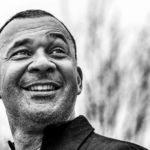
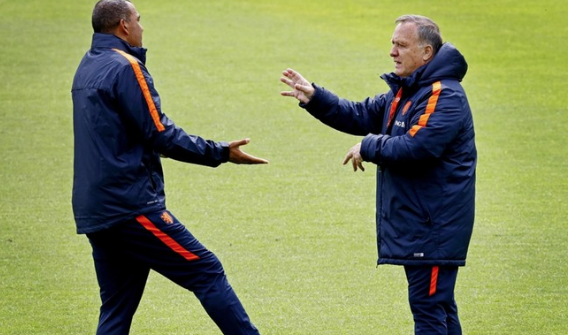

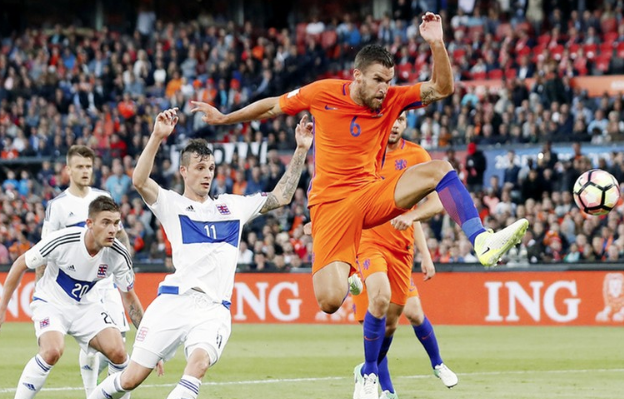
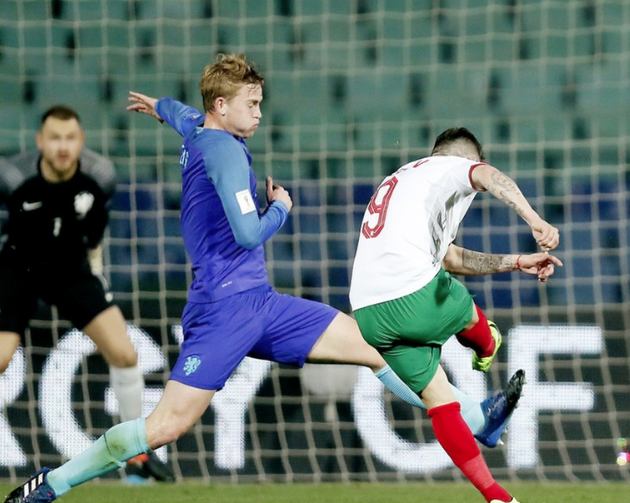
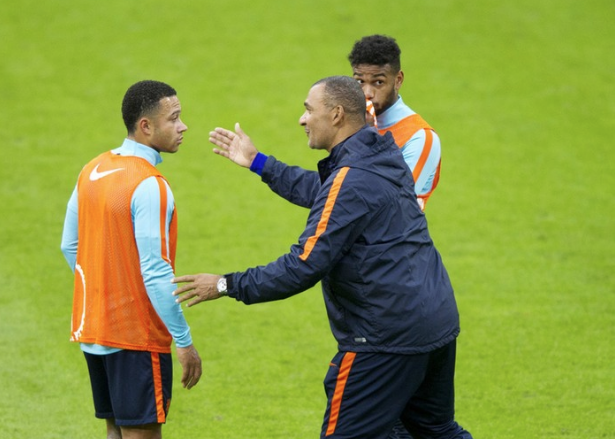
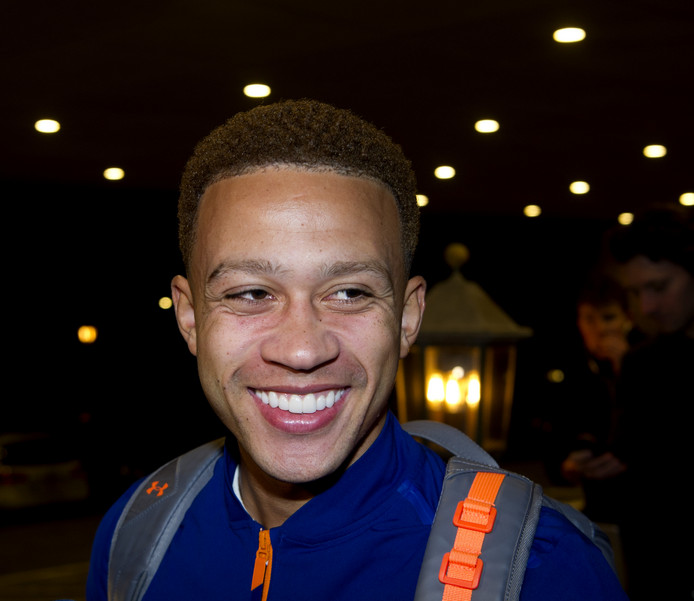
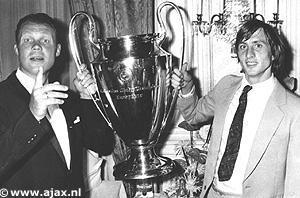
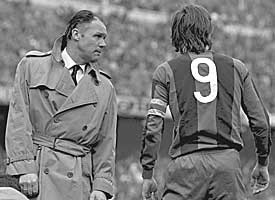
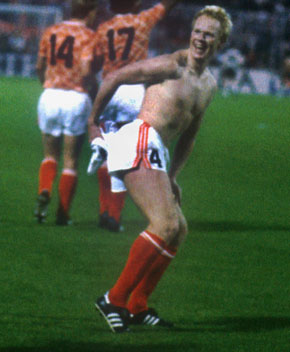
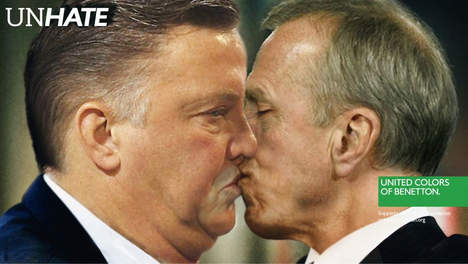
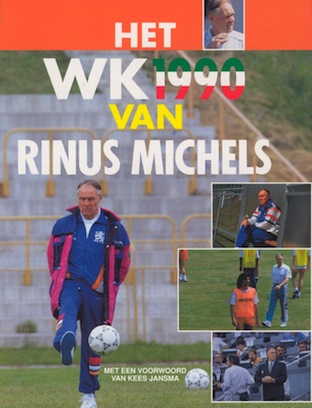 The book written on that weird 1990 campaign…
The book written on that weird 1990 campaign… 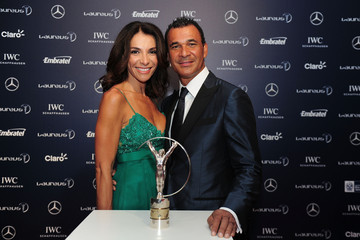
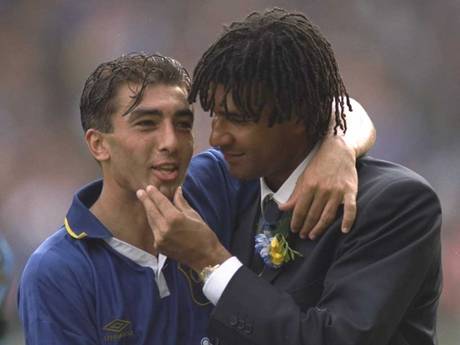
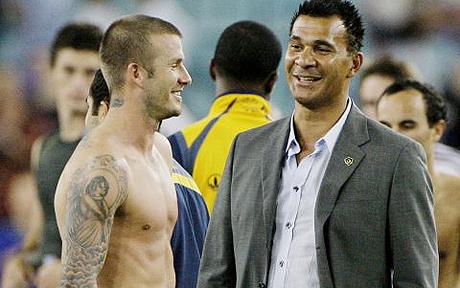
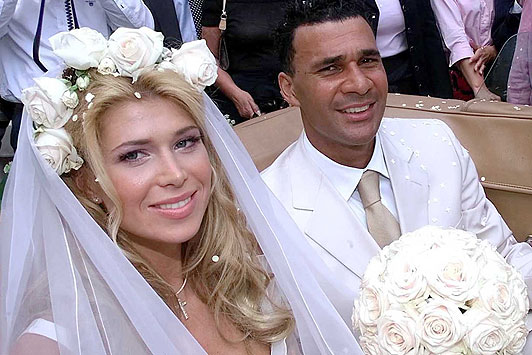
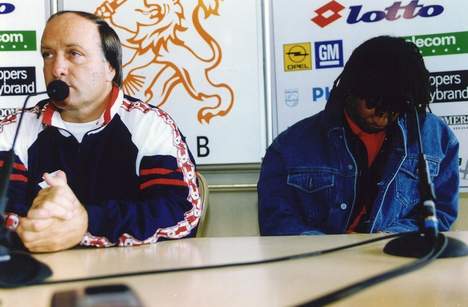
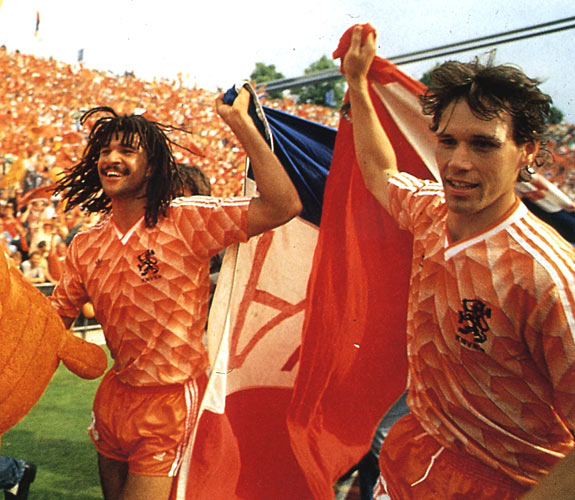
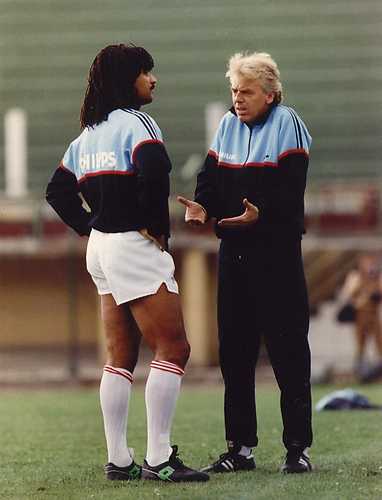 Body language 101
Body language 101